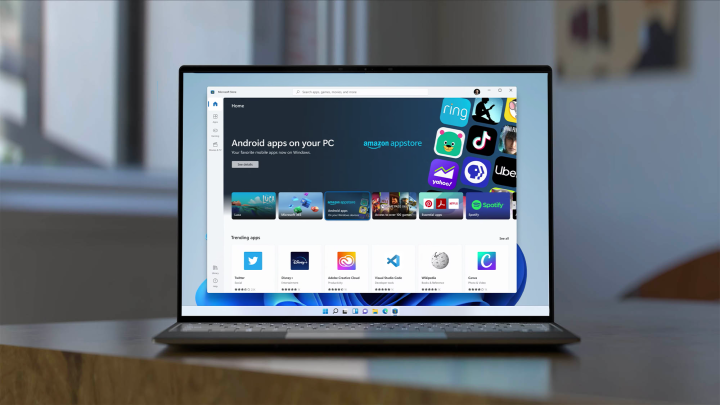One of the most exciting announcements to come out of Thursday’s Windows 11 event is the ability to install Android apps on Windows 11. In the original announcement, Microsoft said it’s partnering with Amazon to bring Android apps to Windows 11 through the Amazon App Store. However, a Microsoft engineer has clarified that users will also be able to sideload any Android app.
Miguel de Icaza, who has worked with Microsoft in various capacities for several years, said that users will be able to load APK files — the file extension for Android apps — from Windows.

The need for sideloading apps is clear when comparing the number of apps on Google Play to the number on the Amazon App Store. Amazon’s service has several key apps missing from its library, including many leading password managers, Google apps, and Slack. The apps that are in the catalog don’t benefit from Google Play Services, either, which is at the heart of many of the most popular Android apps.
Sideloading gets around the problem by allowing you to install apps from anywhere, not just from a supported marketplace. Although that’s great for accessing apps you otherwise wouldn’t be able to use, the loophole is often used as a vehicle for piracy. Between 2013 to 2018, for example, pirated apps accounted for around $17.5 billion in lost revenue.
That’s bad business. Google responded to the rising rates of piracy by implementing antipiracy measures for Android games. The issue is that, although these measures can deter some piracy, they don’t get around security risks. Apps that don’t come from a traditional app store can contain malicious code, especially if they’re paid apps that you’re sideloading for free.
It’s not clear what role Android apps will play on Windows, though. It’s true that the Amazon App Store is missing several key apps, but many of them are still available as native Windows apps. With a theme of user “agency” running through the Windows 11 announcement, the ability to sideload apps looks like a way for Microsoft to give more control to users, not to offer apps that aren’t available.
Microsoft hasn’t clarified if Windows 11 will feature any security measures for sideloaded apps. With hardware encryption as a requirement for Windows 11, though, that’s probably a safe assumption.



